Legislation
The Colombian Constitution does not officially establish an ethical duty of society to protect the environment, instead it does mention that people have the right to live in a healthy environment in chapter 3 about, Collective and Environmental rights.
Law 99 of 1993 established the Ministry of Environment, Housing and Territorial Development but simply to guarantee service for humans. Animals were placed as belongings that served humans.
In 2014 and again in 2020, Colombia received a D out of possible grades A,B,C,D,E,F,G on World Animal Protection's Animal Protection Index. [3]
Penalties
Legal penalties of the interest of animal rights are stipulated in Law 599 of 2000 which ways that the illicit advantage taken of the renewable natural resources will be penalised. Trafficking, commercializing, taking advantage or benefiting of specimens, products or parts of the fauna or flora resources in danger will be penalized with between 2 and 5 years of prison and ten Colombian minimum monthly salaries.
In September 2003 a project or draft to reform Law 84 of 1989 did not pass in the Congress of Colombia. The reform proposed the imposition of legal penalties to those who did not abide by the law.

The Spanish Constitution is the democratic law that is supreme in the Kingdom of Spain. It was enacted after its approval in a constitutional referendum, and it is the culmination of the Spanish transition to democracy. The Constitution of 1978 is one of about a dozen of other historical Spanish constitutions and constitution-like documents; however, it is one of two fully democratic constitutions. It was sanctioned by King Juan Carlos I on 27 December, and published in the Boletín Oficial del Estado on 29 December, the date in which it became effective. The promulgation of the constitution marked the culmination of the Spanish transition to democracy after the death of general Francisco Franco, on 20 November 1975, who ruled over Spain as a military dictator for nearly 40 years. This led to the country undergoing a series of political, social and historical changes that transformed the Francoist regime into a democratic state.
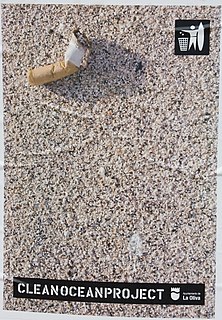
Environmental protection is the practice of protecting the natural environment by individuals, organizations and governments. Its objectives are to conserve natural resources and the existing natural environment and, where possible, to repair damage and reverse trends.

Malpelo is a small island in the eastern Pacific Ocean, located about 500 km (310 mi) west of the Colombian mainland with a military post manned by the Colombian Armed Forces. It consists of a sheer and barren rock with three high peaks, the highest being Cerro de la Mona with a height of 300 m (980 ft). The island is about 1.5 kilometres in length from northeast to southwest, and 640 metres in width.
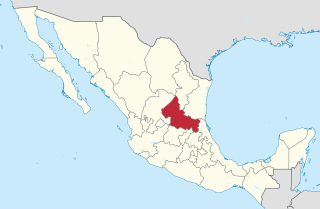
San Luis Potosí is a state in North Central Mexico that is divided into 58 municipalities. According to the 2020 Mexican Census, it is the nineteenth most populated state with 2,822,255 inhabitants and the 15th largest by land area spanning 61,138.0 square kilometres (23,605.5 sq mi). The largest municipality by population is San Luis Potosí, with 911,908 residents, while the smallest is Armadillo with 4,013 residents. The largest municipality by land area is Santo Domingo which spans 4,322.60 km2 (1,669.0 sq mi), and the smallest is Huehuetlán with 71.50 km2 (27.61 sq mi). The newest municipalities are El Naranjo, created out of Ciudad del Maíz, and Matlapa, carved from Tamazunchale, both established in 1994.
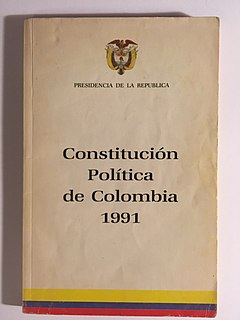
The Political Constitution of Colombia of 1991, is the Constitution of the Republic of Colombia. It was promulgated in Constitutional Gazette number 114 on Thursday, July 4, 1991, and is also known as the Constitution of Human Rights. It replaced the Political Constitution of 1886 and was issued during the presidency of the liberal César Gaviria, with ideas from the also liberal Luis Carlos Galán.
Animal law is a combination of statutory and case law in which the nature – legal, social or biological – of nonhuman animals is an important factor. Animal law encompasses companion animals, wildlife, animals used in entertainment and animals raised for food and research. The emerging field of animal law is often analogized to the environmental law movement because "animal law faces many of the same legal and strategic challenges that environmental law faced in seeking to establish a more secure foothold in the United States and abroad".
Prostitution in Uruguay was legislated in 2002 through the sex work law (17.515). Before that, prostitution was unlegislated but it was not illegal, since the constitution allows any activity that is not forbidden by law. Prostitution is currently not a subject of debate.

Claudia Blum Capurro is a Colombian psychologist and politician who served as foreign minister. A veteran Senator, she became the first woman to serve as President of the Senate of Colombia. She also served as the 26th Permanent Representative of Colombia to the United Nations.
There is a long and established framework for water resources management in Colombia. The Environment Ministry and up to 33 Regional Authorities, are in charge of water resources management and policies at the national and regional and watershed level, respectively. Other sectoral ministries are in charge of water demand for energy, water supply and sanitation and water for irrigation.
The Interamerican Association for Environmental Defense (AIDA) is a non-profit international environmental law organization founded in 1996 by a collaboration of five environmental organizations in the Americas including Earthjustice.
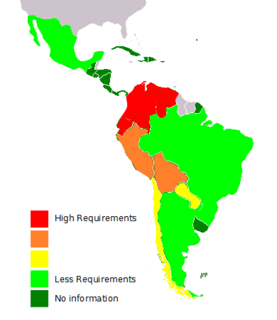
Wastewater discharge standards protect water sources from pollution and mismanagement. Each country in Latin America has its own set of standards, and these vary according to types of water use, agricultural, industrial or recreational use. Water quality is maintained by controlling the physicochemical and bacteriological parameters. The majority of water laws include fines for noncompliance. In many cases fines are inadequate and do not stop offending. In other cases the standards are lax and monitoring is sub-par.
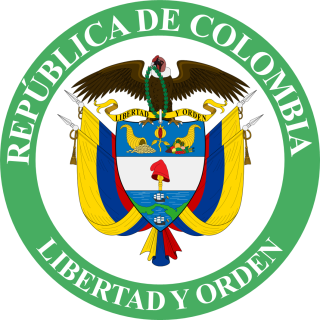
The Ministry of Environment, Housing and Territorial Development was a national executive ministry of the Government of Colombia charged with determining and regulating the standards and guidelines for the protection of the environment, the improvement and availability of potable water, and the overseeing of housing, territorial development, and sanitation.
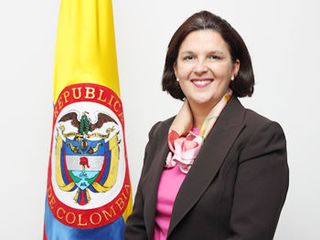
Beatriz Elena Uribe Botero is a Colombian economist and politician currently serving as the 1st President of the National Mining Agency of Colombia.
The Ministry of Environment was the national executive ministry of the Government of Colombia charged with determining and regulating the standards and guidelines for the protection of the environment, investigate and implement environmental policies. As part of a wider cabinet reshuffle in 2002, the ministry was given the housing and land management portfolios, becoming the Ministry of Environment, Housing and Territorial Development.
The Defensoría del Pueblo de la República Bolivariana de Venezuela is a state-funded human rights agency in Venezuela responsible for investigating complaints against any public authority. Along with the Public Ministry and the Comptroller-General of the Republic, the office forms the 'citizens’ power' branch of the Government of Venezuela. The three bodies collectively form the Republican Moral Council, a body established to promote moral and ethical behaviour by public officials.
Animal rights are distinguishable from animal welfare. In general, the term "animal rights" is the belief that humans do not have a right to use animals for their own purposes. "Animal welfare", on the other hand, is the belief that humans do have a right to use animals as long as the animals are treated humanely. Globally, animals have been gaining importance over the years. Particularly, in Argentina, people have also fought and continue to fight for their rights. Although many people show disinterest in animals, others fight for their protection and wellbeing. Due to the collaboration of several protectionists, both domestic and wild animals have become of great importance to Argentine society. In addition, both population and governments have put emphasis on their rights, the campaigns against animal abuses, and, essentially, the 14.346 Act that has been passed on as regards animal safety in Argentina. Furthermore, there are also different entities that specifically refer to animal rights and animal protection, either by the Argentinian government or by independent organizations; therefore, in Argentina there has been a whole mobilization from around the 1950s aimed at raising awareness among the population about the importance of animals as living beings and how fundamental it is to know about their rights and how to enforce them, since they have suffered a great deal throughout history.

Liz Chicaje Churay is an indigenous Peruvian leader who has contributed significantly to the protection of rainforests and rivers in the Loreto area of northeastern Peru, safeguarding the rights of the Yagua people. Thanks to her efforts, the Yaguas National Park was established in 2018. In January 2019 in Lima, she was awarded the Franco-German prize for human rights by the French and German ambassadors.

The Criminal Code is a law that codifies most criminal offences in Spain. The Code is established by an organic law, the Organic Law 10/1995, of 23 November, of the Criminal Code. Section 149(6) of the Spanish Constitution establishes the sole jurisdiction of the Cortes Generales over criminal law in Spain.
The Ministry of Environment is the Uruguayan government ministry which oversees the environment of Uruguay.











